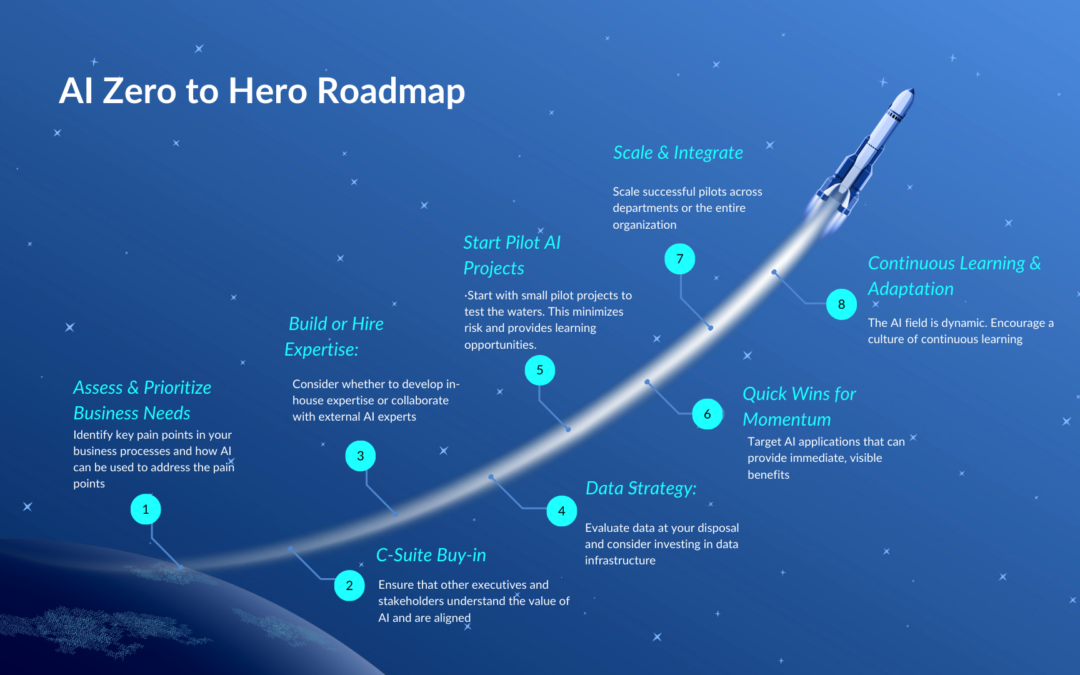As a business executive looking to initiate an AI journey from ground zero, you’ll want a streamlined, strategic approach.
Here’s a roadmap tailored to an executive’s perspective:
- Assess and Prioritize Business Needs:
- Identify key pain points in your business processes.
- Pinpoint areas where AI can add the most value: This might be in automating repetitive tasks, enhancing customer service, or gaining insights from data.
- C-Suite Buy-in and Alignment:
- Ensure that other executives and stakeholders understand the value of AI and are aligned with your vision.
- Allocate budget and resources specifically for AI initiatives.
- Build or Hire Expertise:
- Consider whether to develop in-house expertise or collaborate with external AI experts.
- Hiring an AI specialist or team can guide the project, or partnering with reputable AI solution providers can be beneficial.
- Data Strategy:
- Evaluate the data at your disposal. AI thrives on good quality data.
- Consider investing in data infrastructure and ensure proper data governance practices are in place.
- Pilot Projects:
- Start with small pilot projects to test the waters. This minimizes risk and provides learning opportunities.
- Successful pilots can then be scaled up.
- Quick Wins for Momentum:
- Target AI applications that can provide immediate, visible benefits. Successes can build confidence and momentum for larger projects.
- Scale and Integration:
- Integrate AI into existing systems and workflows.
- Scale successful pilots across departments or the entire organization.
- Continuous Learning and Adaptation:
- The AI field is dynamic. Encourage a culture of continuous learning.
- Regularly assess the effectiveness of AI solutions and be prepared to adapt.
- Encourage feedback from all levels within the organization about the effectiveness and impact of AI solutions.
- This feedback is invaluable for iterative improvement.


Recent Comments